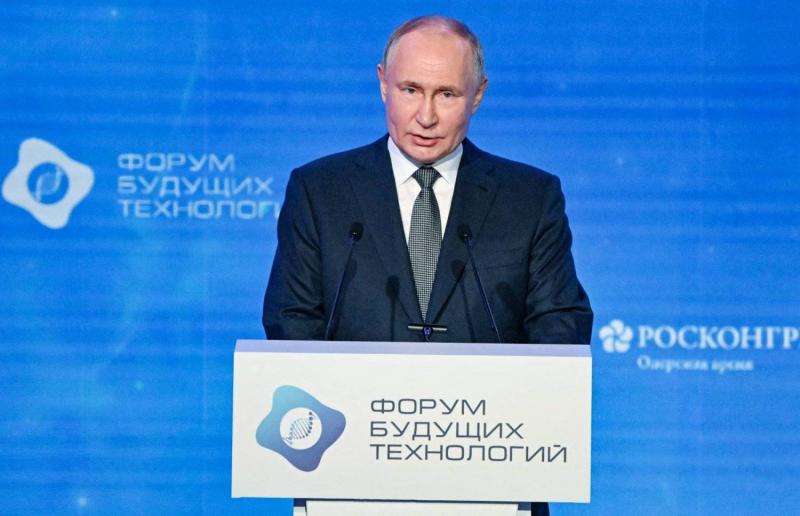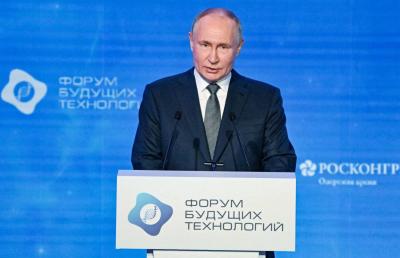In a hopeful announcement that may bring joy to thousands of cancer patients worldwide, Russian President Vladimir Putin recently stated that Russian scientists are on the verge of producing cancer vaccines that could be available soon. However, he did not specify the types of cancer targeted by these anticipated vaccines or how they work. Experts and doctors confirmed that the concept of developing anti-cancer vaccines has been explored for over 20 years, with scientists attempting to create vaccines that strengthen the body's immune system.
They explained that the concept is similar to that of a typical vaccination against viruses and epidemics, relying on the presence of ribonucleic acid enzymes which repair faults in the nucleic acids within the body's cells that lead to cancer. They indicated that the vaccine consists of a viral carrier or what is known as a viral envelope, containing a virus known for its ability to attack body cells and spread. This virus's nucleic acid is removed, and the required nucleic acid for repair is placed inside the virus, mixed with the enzyme capable of fixing the damage and faults causing cancer, all occurring before the cancerous tumor stage.
Experts in the UK are working on a vaccine against cancer. Recently, efforts have been announced by specialists in the United Kingdom to begin testing a new vaccine against solid tumors, such as melanoma skin cancer. This new vaccine contains a genetic molecule called "mRNA" that works to produce specific proteins. The vaccine directs the cells to produce proteins typically found in solid cancerous tumors, presenting them to the immune system to combat cancer cells.
The first patient in the UK, an 81-year-old man, has received a dose of a new cancer vaccine designed for treating solid tumors, like melanoma. Therapeutic cancer vaccines function as a type of immunotherapy, helping train the immune system to fight cancer cells. They differ from vaccines that prevent cancer, such as the human papillomavirus vaccine, which is effective in preventing cervical cancer.
A statement from the Imperial College Healthcare NHS Trust, one of the institutions conducting the global trial, revealed that the new vaccine currently being tested in the UK and other locations worldwide, known as “mRNA-4359,” contains a genetic molecule called “mRNA” that transmits instructions to build protein in cells, prompting them to produce specific proteins. Dr. David Benato, a clinical scientist in the surgery and cancer department at Imperial College London, stated, "This research is still in its early stages and may take several years to become available to patients. However, this trial lays the crucial foundation that brings us closer to new treatments that are potentially less toxic."
**The Main Types of Cancer Vaccines**
Cancer treatment vaccines are a type of immunotherapy that treats cancer by strengthening the body’s natural defenses against the disease, according to the National Cancer Institute in the United States. Unlike preventive cancer vaccines, therapeutic cancer vaccines are designed for individuals already diagnosed with the disease; they work against cancer cells rather than against something that causes cancer.
The idea behind therapeutic vaccines is that cancer cells contain substances called tumor-associated antigens that are not present in normal cells, or if they are, they exist at lower levels. Therapeutic vaccines can help the immune system learn how to recognize these antigens, respond to them, and destroy the cancer cells that contain them.
Therapeutic cancer vaccines can be manufactured using three main methods:
1. **Cancer Cells**: They can be created from the cancer cells of the infected person, meaning they are specifically tailored to elicit an immune response against the unique characteristics of that person's cancer.
2. **Antigens**: Vaccines may be made from tumor-associated antigens found in cancerous cells of many individuals with a specific type of cancer. Such a vaccine could provoke an immune response in any patient whose cancer produces that antigen. This type of vaccine is still under investigation.
3. **Stem Cells**: Vaccines can be made from the infected person's stem cells, a type of immune cell. Stem cell vaccines stimulate the immune system to respond to an antigen present on cancer cells. The stem cell vaccine, (sipuleucel-T), has been approved for the treatment of certain men with advanced prostate cancer.
A different type of cancer treatment, called oncolytic virus therapy, is sometimes described as a form of cancer treatment vaccine. This involves a virus that infects and destroys cancer cells without harming normal cells.
**Types of Cancer Treated with Vaccines**
- **Sipuleucel-T** is used to treat individuals with prostate cancer.
- **T-VEC** is used to treat certain individuals with melanoma that recurs after surgery and cannot be removed by further surgery.
Therapeutic cancer vaccines may cause side effects that affect individuals in various ways. The side effects experienced and how one feels will depend on their health prior to treatment, the type of cancer they have, its stage, the type of therapeutic vaccine received, and the dosage. Physicians and nurses cannot predict with certainty when or if side effects will occur or how severe they will be. Therefore, it is essential to know the signs to look for and what to do if problems arise. Therapeutic cancer vaccines can also cause flu-like symptoms.




